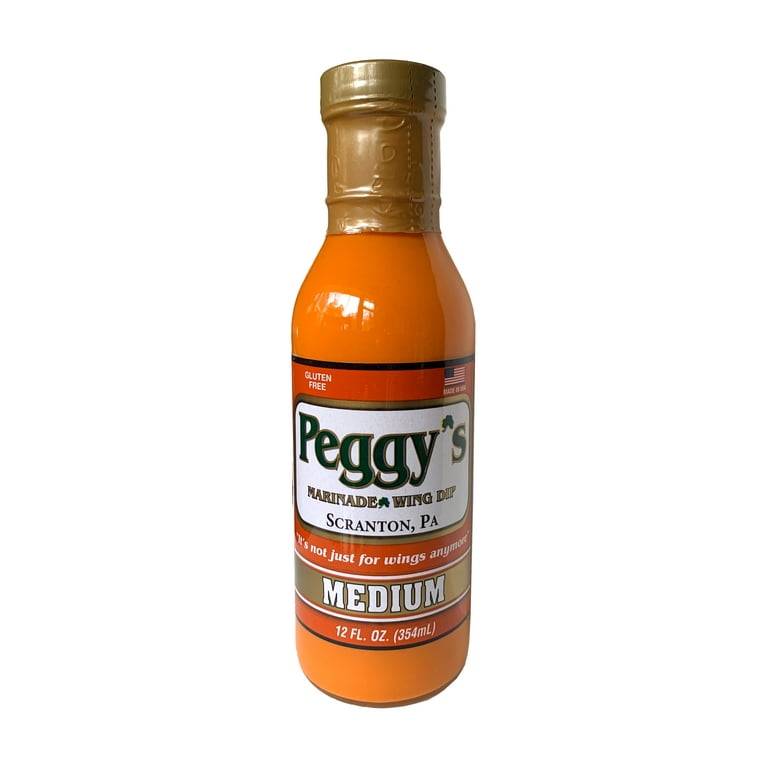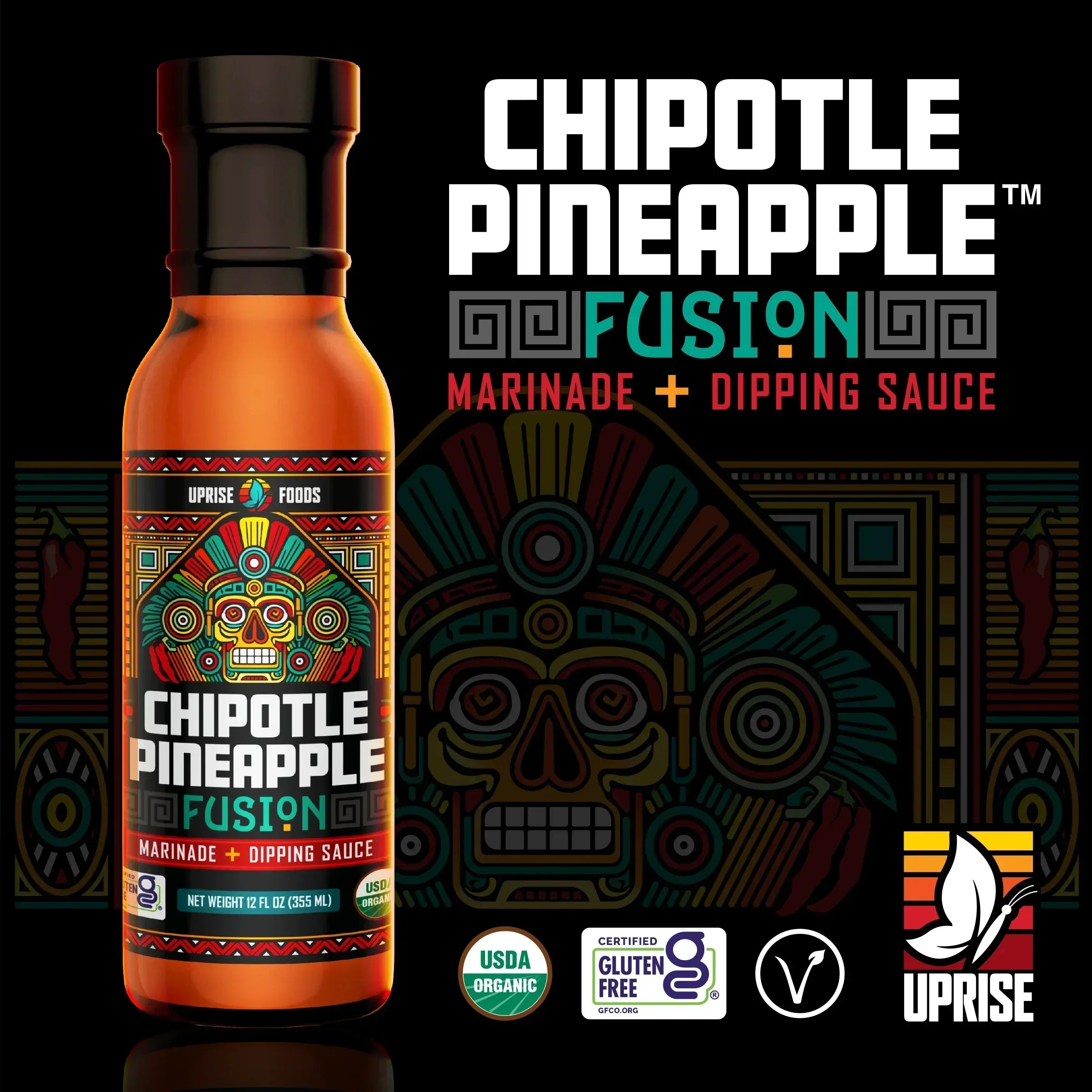Have you ever marinated chicken or steak, only to find yourself tempted to dip your veggies or bread into that aromatic blend? You’re not alone.
The allure of using marinade as a dipping sauce is undeniable. But before you dive in, there are some important things you should know. Understanding the difference between marinade and dipping sauce could save you from a culinary mishap. We’ll explore whether your favorite marinade can double as a dipping sauce, and how to make it safe and delicious.
Get ready to uncover the secrets that will transform your cooking game and make your meals even more irresistible. You won’t want to miss these valuable tips!

Credit: www.walmart.com
Marinade Basics
Marinades are liquid mixtures that add flavor and tenderness to meats. They typically contain acid, oil, and seasonings. This blend helps break down tough fibers in meat, making it juicy and flavorful.
Not only do marinades enhance taste, they also bring new flavors to dishes. Using fresh herbs and spices in your marinade can create unique tastes. This makes each meal special.
What Makes A Marinade?
A marinade usually has three main components: acid, fat, and flavor. The acid, like lemon juice or vinegar, tenderizes the meat. Fat, often oil, helps keep the meat moist. Flavor comes from herbs and spices, adding depth to the taste.
Common Ingredients In Marinades
Typical marinade ingredients include garlic, soy sauce, and honey. Each ingredient adds its own unique taste. Garlic brings a pungent aroma, while soy sauce adds saltiness. Honey provides sweetness, balancing other strong flavors.
How Marinades Work
Acid in marinades breaks down protein structures, making meat tender. This process allows flavors to penetrate deeper. The longer the meat marinates, the more intense the flavors become.
Safe Usage Tips
Never reuse marinade that has touched raw meat. If you want to use it as a sauce, boil it first. This kills bacteria and makes it safe to eat.

Credit: uprisefoods.com
Ingredients In Marinades
Marinades are a flavorful blend of ingredients. They enhance the taste of meats and vegetables. Understanding the components of marinades is crucial. This knowledge helps you decide if they can double as a dipping sauce. Let’s explore what goes into a typical marinade.
Acids
Acids are key in marinades. They tenderize food and add zing. Common acids include vinegar, lemon juice, and lime juice. These ingredients break down proteins, making them softer.
Oils
Oils are essential for moisture. They help retain juiciness in meats and vegetables. Olive oil and sesame oil are popular choices. They also help in the even distribution of flavors.
Herbs And Spices
Herbs and spices add depth to marinades. They provide aroma and taste. Garlic, rosemary, and thyme are common. Paprika and cumin add a smoky flavor. These ingredients create a rich and inviting profile.
Sweeteners
Sweeteners balance the acidity. They create a harmonious taste. Honey, brown sugar, and maple syrup are often used. These ingredients add a subtle sweetness to marinades.
Savory Elements
Savory elements enhance umami. Soy sauce and Worcestershire sauce are popular choices. They add saltiness and depth. These ingredients make marinades more robust.
Additional Flavors
Unique flavors make marinades special. Ingredients like mustard or hot sauce add a kick. They introduce heat or tanginess. These elements create a memorable taste experience.
Differences Between Marinades And Dipping Sauces
Have you ever found yourself standing in the kitchen, staring at a bottle of marinade and wondering if it could double as a dipping sauce? You’re not alone. Understanding the differences between marinades and dipping sauces can transform your culinary adventures and elevate your dishes. Let’s dive into what sets these two apart.
Differences In Ingredients
Marinades typically contain acidic elements like vinegar or citrus juice. These ingredients help tenderize meat and add flavor. On the other hand, dipping sauces often focus on enhancing taste, featuring a balanced blend of sweetness, saltiness, and tanginess.
Think about your last barbecue. Did you notice how the marinade’s acidity tenderized the meat? Now, contrast that with the smooth, balanced flavor of your favorite dipping sauce. It’s all in the ingredients.
Purpose And Usage
Marinades are designed to infuse flavor into proteins. They penetrate the surface and alter the texture, making meats juicier and more flavorful. Dipping sauces serve as a complement, adding a final layer of taste without changing the texture of your dish.
Imagine your grilled chicken without that tangy marinade. It would lack depth. But, the dipping sauce you use? It’s all about that finishing touch, making each bite memorable.
Safety Considerations
One crucial difference is safety. Marinades are often used raw, which can pose risks if not handled correctly. Dipping sauces are generally safe as they don’t involve raw ingredients. Always ensure your marinade is cooked before using it as a dipping sauce.
Think about the last time you reused a marinade as a sauce. Did you boil it first? It’s a small step that ensures your meal stays safe and delicious.
Texture And Consistency
Marinades usually have a thinner consistency. They’re designed to seep into the food, aiding absorption. Dipping sauces often feature a thicker consistency, perfect for coating each bite evenly.
Next time you’re at a party, notice how people interact with sauces. The thicker, richer dipping sauce draws everyone in, while the marinade quietly works its magic behind the scenes.
Do you have a favorite dipping sauce or marinade? How do you decide which to use for your dishes? Understanding these differences can open up a whole new world of flavor possibilities in your kitchen.

Credit: allegromarinade.com
Safety Concerns
Using marinade as a dipping sauce can be tempting. Its rich flavors are enticing. Yet, safety concerns arise with this practice. Understanding these concerns is crucial for health. Contaminated marinades pose risks. Let’s explore the safety issues involved.
Raw Ingredient Risks
Raw ingredients in marinades can cause harm. Meat juices often remain in used marinades. Bacteria like Salmonella thrive in these juices. Consuming them can lead to foodborne illness. Vegetables and herbs in marinade are not exempt. They may carry pathogens too.
Proper Food Handling
Handling food properly is essential. Always separate raw and cooked foods. Use different utensils for each. This prevents cross-contamination. If you wish to use marinade as a dip, cook it first. Boil the marinade for safety. Cooking kills harmful bacteria. Ensure it reaches a high temperature.
Transforming Marinade Into A Safe Sauce
Transforming marinade into a safe dipping sauce requires boiling to kill bacteria. This ensures the sauce is safe for consumption. Always check ingredients before using marinade as a dip.
Transforming marinade into a safe sauce is a smart culinary move. Marinades enhance flavors but using them straight as dipping sauces can be unsafe. Cooking the marinade makes it safe for consumption. This process eliminates bacteria from raw ingredients like meat. Properly cooked marinade opens doors to new flavor possibilities.
Cooking The Marinade
Heat the marinade thoroughly on the stove. Bring it to a boil and simmer for several minutes. This step is crucial for safety. Boiling kills harmful bacteria and makes the marinade safe. Use a saucepan for even heating. Stir occasionally to prevent sticking or burning. Once cooked, let it cool before serving.
Enhancing Flavor Profiles
Cooked marinades can taste different. Enhance flavors by adding spices or herbs. Garlic, ginger, or fresh herbs work well. Consider a splash of lemon juice for zest. Adjust seasoning to match the dish you’re serving. Taste and tweak the marinade for balance. Mixing flavors creates a delightful dipping experience.
Popular Marinade-to-sauce Conversions
Marinades add flavor and tenderness to meats. But can you use them as dipping sauces? Absolutely. With a few tweaks, marinades can transform into delightful sauces. Let’s explore popular marinade-to-sauce conversions. This section will focus on soy-based, citrus and herb, and spicy marinades.
Soy-based Marinades
Soy sauce is rich in umami flavor. It makes a savory base for dipping sauces. To convert a soy-based marinade, adjust the saltiness. Add a splash of honey or brown sugar. It balances the salty taste and adds sweetness. Garlic and ginger enhance the flavor profile. Heat the mixture briefly to blend the flavors. Cool it down before serving as a dipping sauce.
Citrus And Herb Marinades
Citrus marinades are fresh and tangy. They work well as dipping sauces. To convert, reduce the acidity with a bit of olive oil. Add chopped herbs like parsley or basil for freshness. A pinch of salt and pepper can enhance the taste. Blend the mixture for a smooth texture. Serve chilled for a refreshing dip.
Spicy Marinades
Spicy marinades pack a punch. They make exciting dipping sauces. To convert, balance the heat with sweetness. Add honey or maple syrup for contrast. Lime juice can brighten the flavors. Adjust the spiciness to your preference. Blend until smooth and serve warm or cold.
Creative Uses For Marinades And Sauces
Marinades and sauces are the secret weapons in the kitchen that can transform a simple dish into a culinary masterpiece. They are not just for soaking meat or drizzling over pasta. These flavorful concoctions can be used in many creative ways to elevate your meals. Have you ever thought about using your marinade as a dipping sauce? It’s a game-changer that can add a new dimension to your dining experience.
Pairing With Different Foods
Think beyond the traditional pairings. Marinades can enhance the taste of vegetables, seafood, and even snacks. Imagine dipping your crispy chicken wings into a spicy barbecue marinade. It’s not just about chicken and beef anymore.
Try pairing a tangy lemon herb marinade with grilled fish. It will bring out the freshness of the seafood. Or, use a sweet teriyaki marinade as a dip for vegetable skewers. The contrast of flavors can be delightful.
What unique food pairings have you tried with marinades? Sharing your experience might inspire others to experiment in their kitchen.
Culinary Inspiration
Using marinades and sauces as dips can spark culinary creativity. You can mix marinades to create a signature sauce that surprises your taste buds. Have you ever blended honey mustard and soy sauce? The result is a sweet-savory dip that complements fried snacks perfectly.
Next time you host a party, offer a variety of marinades as dips. Your guests will enjoy exploring different flavors, and it might become the highlight of your gathering. Think of a marinade that you love; how can it be transformed into a dip? The possibilities are endless.
These creative uses encourage you to think outside the box. What culinary boundaries can you push today? The kitchen is your playground, and marinades are your tools.
Frequently Asked Questions
Can You Use Marinade Sauce As Normal Sauce?
Yes, you can use marinade sauce as a normal sauce, but adjust the flavor to your preference. Ensure it’s cooked if it was used for raw meat. Make sure it’s safe and tasty for your dish.
Can I Use Nando’s Marinade As A Dipping Sauce?
Yes, you can use Nando’s marinade as a dipping sauce. It’s flavorful and enhances your dish. Ensure to taste it first, as marinades can be strong. Adjust seasoning if needed for the perfect dip experience. Enjoy the spicy kick it offers with your favorite snacks!
Can I Use Bottled Marinade As A Sauce?
Yes, you can use bottled marinade as a sauce. Ensure it’s boiled first to eliminate bacteria. Choose marinades that complement your dish’s flavors. Always check the label for usage recommendations and safety guidelines.
Why Not Use Marinade As Sauce?
Using marinade as a sauce can be unsafe because it often contains raw meat juices. Cooking eliminates bacteria, ensuring safety. Always prepare a separate sauce or boil marinade before using it as a sauce. This prevents cross-contamination, making your meals safe and delicious.
Final Words
Using marinade as a dipping sauce can be delicious. But safety matters. Always ensure it’s cooked if it touched raw meat. Or make a separate batch for dipping. This prevents any risk. Flavors from marinade can enhance dishes. Try experimenting with different ingredients.
Balance is key. Too much acidity might overpower the taste. Always taste first. Adjust as needed. Marinades can bring out unique flavors. They make meals more enjoyable. Just remember the safety tips. A delicious meal awaits. Enjoy the exploration of flavors.
Your dishes can be exciting and safe.

Leave a Reply